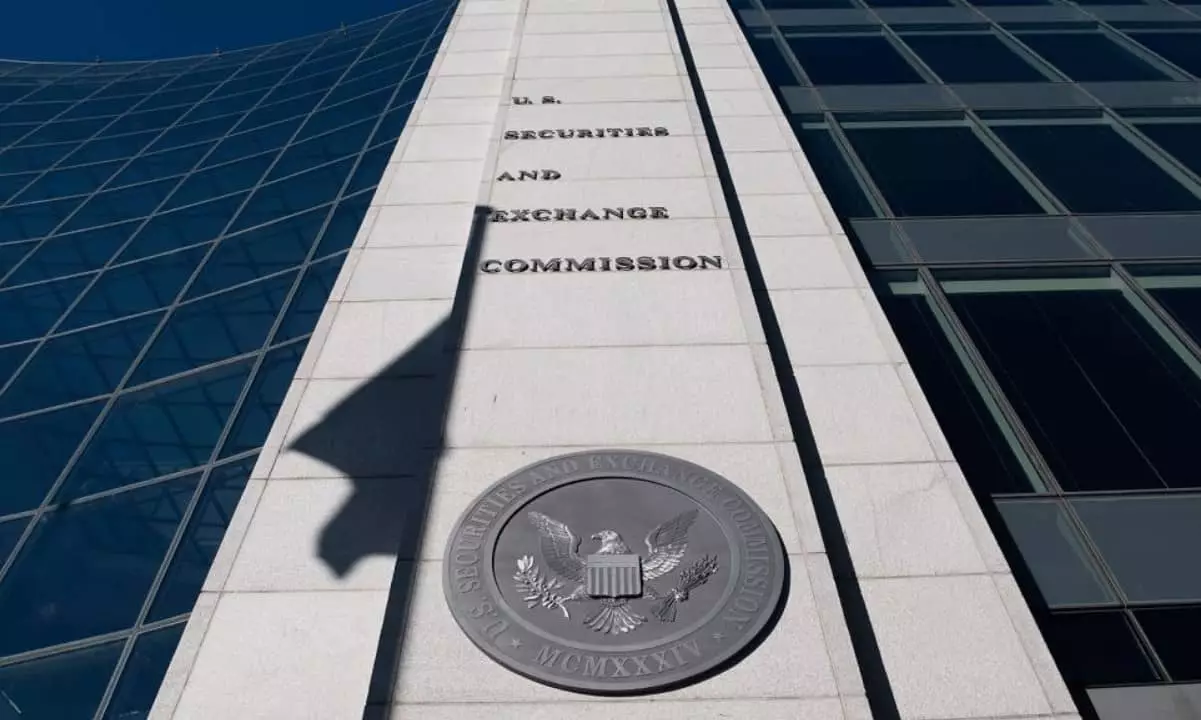The landscape of cryptocurrency is continuously evolving, yet its regulatory framework lags behind. As digital assets gain traction, regulatory bodies like the U.S. Securities and Exchange Commission (SEC) grapple with establishing guidelines that safeguard investors while accommodating innovation. Recently, a group of Republican lawmakers, led by Representative Patrick McHenry and Senator Cynthia Lummis, has raised alarms regarding the SEC’s Staff Accounting Bulletin No. 121 (SAB 121), criticizing what they perceive as a flawed approach to crypto custody regulation.
In a letter directed to SEC Chair Gary Gensler, the lawmakers have urged the immediate rescindment of SAB 121. Their arguments suggest that the SEC’s guidance was instituted without adequate consultation with relevant stakeholders and circumvented the established rulemaking procedures, leading to widespread confusion in the industry. SAB 121 requires custodians of digital assets to recognize a liability on their balance sheets that reflects the fair market value of the assets they hold, diverging significantly from traditional accounting practices. The lawmakers argue that this deviation could misrepresent the custodians’ actual financial obligations and expose consumers to heightened risks.
Critics assert that the SEC’s directive does not merely impose additional burdens on custodians but fundamentally shifts the way the financial obligations of these entities are portrayed. By treating digital assets differently from traditional assets in terms of balance sheet liabilities, the SEC may inadvertently mislead consumers about the financial health and legal standings of custodians.
A cornerstone of democratic governance is adherence to established processes, particularly when it comes to rulemaking. The letter from the GOP lawmakers highlighted a significant oversight: the SEC allegedly classified SAB 121 as mere staff guidance instead of going through the formal notice-and-comment rulemaking process outlined in the Administrative Procedure Act (APA). Such a classification raises important questions of accountability and establishes a dangerous precedent where critical regulatory frameworks can be implemented without rigorous scrutiny.
The criticism of SAB 121 culminates in broader concerns about the perceived lack of transparency within the SEC. The lawmakers pointed to instances where specific financial institutions received exemptions from reporting requirements, highlighting BNY Mellon as a prime example. By offering selective leniency, there appears to be a lack of uniformity in how regulatory standards are applied, leading to suspicions of favoritism.
The notion that certain entities can bypass rigorous compliance raises serious ethical concerns. If some institutions are granted exemptions to SAB 121 while others struggle to meet its requirements, this creates an uneven playing field, ultimately undermining investor protection measures. This inconsistency can breed mistrust within the crypto custody space, as market participants may question the fairness of the SEC’s approach.
During a public hearing in Wyoming, the conversation around BNY Mellon underscored these concerns. General Counsel to Senator Lummis, Chris Land, revealed that the SEC had allowed BNY Mellon to evade some of the more challenging aspects of the guidance, thereby accelerating its entry into the crypto market. With the bank’s ambitions to expand its digital asset services, such variances could provide it with competitive advantages, leading to further regulatory disparities in the sector.
The potential fallout from these regulatory discrepancies may lead to weakened protections for investors. The primary function of regulatory bodies like the SEC is to ensure a fair and transparent marketplace. If certain institutions benefit from leniencies that are not afforded to others, the integrity of the market as a whole is called into question. This lack of uniform application of rules can lead to a diluted trust in regulatory systems, potentially deterring new investments and innovation within the crypto space.
Furthermore, the inconsistency in disclosures and reporting requirements undermines the core objective of transparency, which is critical for fostering an environment of informed investment decisions. Without a cohesive regulatory framework, the risk grows that investors may fall prey to less scrupulous actors operating outside the bounds of fair governance.
As cryptocurrency continues to reshape financial landscapes, it is imperative that regulatory bodies like the SEC adopt a more transparent and consistent approach. The concerns raised by lawmakers regarding SAB 121 highlight the essential need for dialogue, consultation, and adherence to established regulatory processes. Moving forward, the SEC must chart a path that prioritizes equity and accountability, ensuring that all market participants are held to the same standards. Only then can investor protections be truly enhanced, enabling a stable and trustworthy framework for the future of crypto custody.














